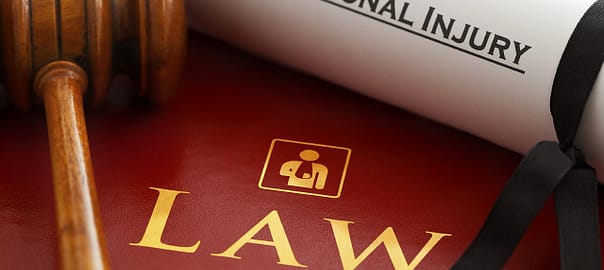Medical negligence cases are known to be complex and challenging, requiring careful examination of evidence and legal expertise. Whether you are a patient seeking justice or a healthcare professional facing allegations, understanding the key components of such lawsuits is crucial. In this article, we will delve into three essential elements that must be proven in order to establish medical negligence: duty and breach of duty, causation, and damages. So let’s dive right in and explore how these factors play a crucial role in determining the outcome of a medical negligence claim.
Proving Duty and Breach of Duty
 When it comes to proving duty and breach of duty in a medical negligence lawsuit, the focus is on establishing the standard of care owed to the patient. Healthcare professionals are legally obligated to provide treatment that meets or exceeds this standard.
When it comes to proving duty and breach of duty in a medical negligence lawsuit, the focus is on establishing the standard of care owed to the patient. Healthcare professionals are legally obligated to provide treatment that meets or exceeds this standard.
To demonstrate a breach of duty, it is necessary to show that the healthcare provider deviated from this expected level of care. This can be done by presenting evidence such as medical records, expert testimony, and relevant guidelines or protocols. For an allegation of negligence to hold up in court, it must be established that another reasonable healthcare professional in a similar situation would not have acted similarly. This comparison helps determine whether there has been a breach of duty.
Proving Causation
In a medical negligence lawsuit, proving causation is a crucial element. It involves demonstrating that the negligent actions of the healthcare professional directly caused harm or injury to the patient. This can be a complex task, requiring establishing a direct link between the healthcare provider’s actions and the resulting damage. To prove causation, you need to gather and present evidence that clearly shows how the medical practitioner’s negligence led to your injuries or worsened your condition. This may involve obtaining expert opinions from other medical professionals who can testify about what should have been done differently in your case. Additionally, it is important to demonstrate that no intervening factors could have contributed substantially to your injuries. These intervening factors might include pre-existing conditions or other unforeseen complications unrelated to the physician’s actions.
Proving Damages
In a medical negligence lawsuit, proving damages is a crucial element. This involves demonstrating the harm or injury caused by the healthcare provider’s negligence. It is essential to establish that the patient suffered actual physical, emotional, or financial losses due to the medical error. To prove damages, the plaintiff must provide evidence such as medical records, bills, and receipts for treatments related to correcting or managing the negligent act.
 Expert witness testimonies may also be presented to support and quantify the extent of harm caused by the provider’s actions. In addition to tangible losses like medical expenses and lost wages due to missed work, non-economic damages can also be sought. These include pain and suffering, loss of enjoyment of life, mental distress, and other intangible effects resulting from substandard care.
Expert witness testimonies may also be presented to support and quantify the extent of harm caused by the provider’s actions. In addition to tangible losses like medical expenses and lost wages due to missed work, non-economic damages can also be sought. These include pain and suffering, loss of enjoyment of life, mental distress, and other intangible effects resulting from substandard care.
A medical negligence lawsuit is a complex legal matter requiring the plaintiff to prove several key elements to establish their case. Proving duty and breach of duty involve demonstrating that the healthcare provider was obligated to provide a certain standard of care and failed to meet that standard. Causation must be proven by showing a direct link between the provider’s actions or omissions and the patient’s injuries or harm suffered.
Damages must be shown, meaning that there were actual losses or injuries due to the medical negligence. Navigating through these elements can be challenging, but with strong evidence and expert guidance from an experienced attorney specializing in medical malpractice cases, justice can prevail for those who have been victims of medical negligence. It is important for individuals who believe they may have a valid claim to seek legal advice promptly, as there are specific time limits within which such lawsuits must be filed.




 Exceptional attorneys have an extremely different set of abilities that make them a top legal representative. Chances are they aren’t rich, do not have high profile customers, don’t have a credibility for being cold and likely have a high moral credibility instead.
Exceptional attorneys have an extremely different set of abilities that make them a top legal representative. Chances are they aren’t rich, do not have high profile customers, don’t have a credibility for being cold and likely have a high moral credibility instead. every turn. Dependability is important to make sure that your legal representative will do what they say they will certainly do and that their methods within your case are consistent. Your attorney needs to be persistent in promoting for you (their client) and what is for your benefit and the very best interest in promoting the law.
every turn. Dependability is important to make sure that your legal representative will do what they say they will certainly do and that their methods within your case are consistent. Your attorney needs to be persistent in promoting for you (their client) and what is for your benefit and the very best interest in promoting the law.